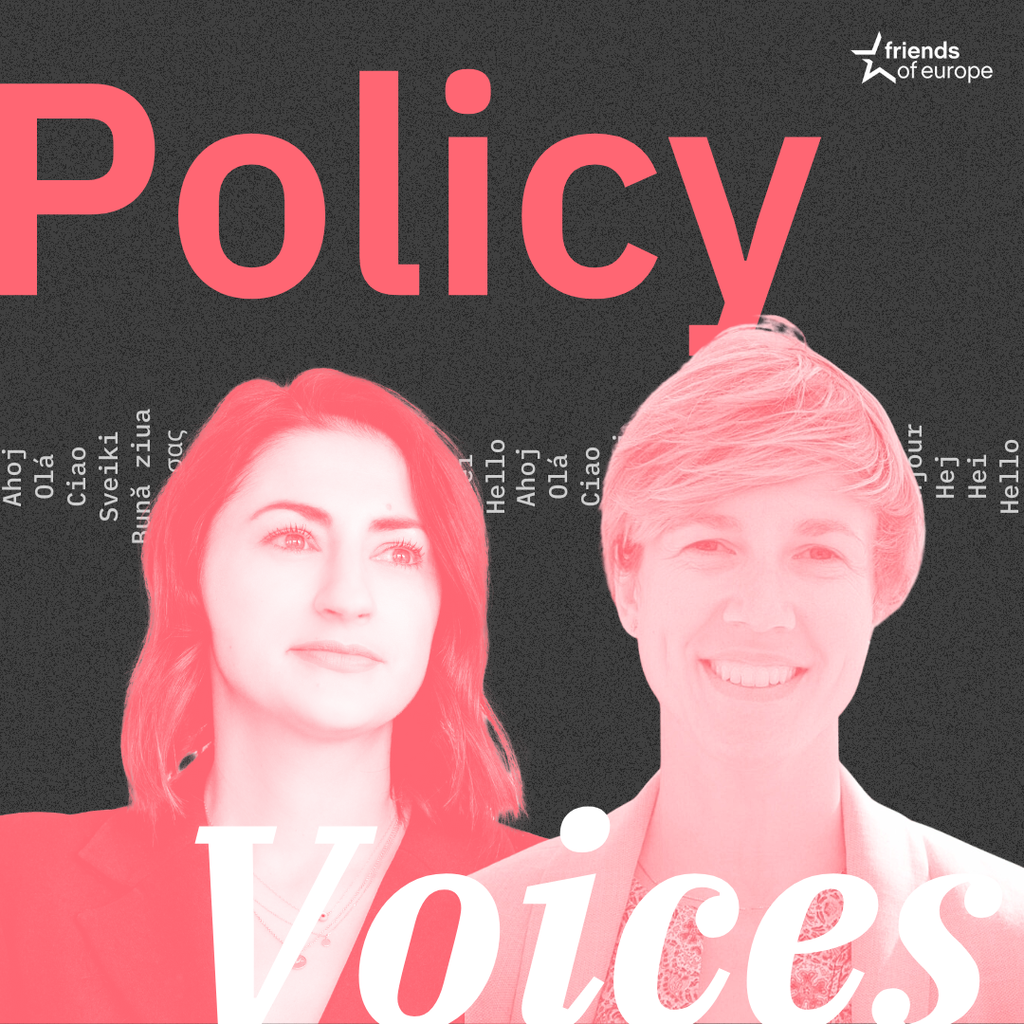A bold vision for a climate-neutral and competitive Europe
Next event In person & livestreamed

- Area of Expertise
- Climate, Energy & Natural Resources
Climate, Energy & Natural Resources

President, Western Europe at The Coca-Cola Company
The first half of the year has been dominated in so many ways by COVID-19. It changed our lives and brought fear, uncertainty and financial hardship for people and businesses.
During this time, however, we have seen so many people give their very best. Health professionals have stepped up and given their all to save lives and care for the sick. Those in the food supply chain have fought hard to keep the shelves stocked. Delivery drivers have been saviours for those in quarantine. And the hospitality industry, faced with lockdowns across Europe, has toiled to meet the demands of the ‘new normal’.
The pandemic has brought about rapid changes in consumer behaviour as people adjust to a new way of living: more home-centred, more remote, more virtual.
This has also been a time to pause and reflect and reconsider the value of things often overlooked. People’s habits, wants and needs are changing on a daily basis. We know COVID-19 has made many Europeans stop and think about the sort of future they want.
We must re-evaluate how we will do things post-COVID, ensuring that no citizen, region or country is left behind
This is why the EU’s Green Deal is so important. It is an opportunity for us to build a better, greener future for Europe by reconsidering what we took for granted. We must re-evaluate how we will do things post-COVID, ensuring that no citizen, region or country is left behind.
The European Commission plays a vital role in this regard, by guiding EU member states to invest recovery funds in priority areas such as the circular economy, improving our environmental infrastructure, and protecting and restoring Europe’s biodiversity. This reflects our own global sustainability priorities.
Europe’s ambition to become the first climate-neutral continent by 2050 is also encouraging. We have already made important commitments in this effort by reducing CO² emissions and setting science-based targets aligned with the Paris Climate Agreement.
We want to lead by example in protecting water as a shared resource. We promised to return 100% of the water we use to make our drinks. We met and exceeded that goal and continue to regenerate more water than we use each year.
Quantifying natural capital benefits of water stewardship can unlock and scale much-needed investment into nature-based solutions
Water stewardship projects are key for implementing successful sustainability strategies for nature. According to the World Resources Institute, 3.5 billion people may face water stress by 2025; already today temporary water stress has dramatically increased in Europe due to climate change and increasing demand. Initiatives such as the ‘Living Danube’ partnership can help replenish water sources, build climate resilience, restore ecosystems, and protect biodiversity.
Replenishment interventions create more than just volumetric water benefits.Through our work on water, we developed a first methodology to establish the broader ecosystem services benefits and the added value of our work on water in connection to biodiversity, carbon capture, agriculture, ecotourism, among others.
Quantifying natural capital benefits of water stewardship can unlock and scale much-needed investment into nature-based solutions. This is one of the five recommendations of the Business for Nature call to Action which our company joined recently, and one where the private sector can lead.
The same principles apply to packaging: we want to collect all of our packaging and re-use them in a circular economy. Rather than littering empty plastics bottles, they should be re-used to make new bottles. We have shown that it is possible to use PET-bottles made of 100% recycled plastic.
Now is the time for all actors to come together to build a new tomorrow
We must protect, conserve and restore nature. As well as being the right thing to do, it also makes economic and financial sense. With 25% of all plant and animal species now threatened with extinction, it is more than clear that the cost of inaction is just too high.
Now is the time for all actors to come together to build a new tomorrow. People need to think differently, embrace change and, importantly, never forget how much stronger we are together. Together, we can move forward and make the world not just different, but better.
Next event In person & livestreamed

Past event In person & livestreamed

Past event In person & livestreamed

Past event In person & Livestreamed





Stay informed
We use cookies and similar technologies to adjust your preferences, analyze traffic and measure the effectiveness of our campaigns. Learn more about our privacy policy.